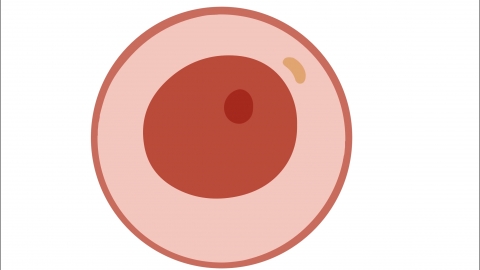What symptoms may occur when the fertilized egg implants?
Generally, some women may experience light vaginal bleeding, breast tenderness, mild abdominal pain, fatigue, or a slight rise in body temperature during implantation of the fertilized egg. However, not all women will exhibit these symptoms, and the specific manifestations may vary among individuals. A detailed analysis is as follows:
1. Light vaginal bleeding
During implantation, the fertilized egg may penetrate the uterine lining, causing minor rupture of capillaries and resulting in light vaginal bleeding. This bleeding is usually light pink or brown in color, minimal in amount, and short in duration. It is distinctly different from menstrual bleeding at the beginning of a period and generally does not require special treatment.
2. Breast tenderness
After implantation, changes in estrogen and progesterone levels in the female body can stimulate breast tissue, leading to breast tenderness, which may be accompanied by nipple sensitivity. This symptom is similar to premenstrual breast discomfort; however, due to individual differences in hormone levels, the intensity and duration of tenderness may vary.

3. Mild abdominal pain
During implantation, certain changes occur in the endometrium, and the uterus may experience slight contractions. Sensitive women might feel mild pain or a sensation of pressure in the lower abdomen, similar to the mild discomfort experienced before menstruation. This pain is usually mild, not localized to a specific area, short in duration, and does not progressively worsen.
4. Fatigue
Hormonal fluctuations in the body after implantation—especially the rise in progesterone levels—can affect a woman's physical condition, causing noticeable fatigue, often accompanied by drowsiness and low energy. These symptoms are often related to the body's preparation for subsequent pregnancy and metabolic adjustments.
5. Slight increase in body temperature
Under normal circumstances, a woman's body temperature remains elevated after ovulation. If the fertilized egg successfully implants, hormonal changes will maintain this high-temperature state. Some women may notice a slight increase in body temperature, which will not drop as it would if implantation did not occur and menstruation begins.
In addition, a small number of women may experience mild nausea or frequent urination during implantation. It is important to note that these symptoms are not unique to implantation and may also be premenstrual symptoms or caused by other health conditions. If pregnancy is suspected, a pregnancy test after a missed period or a medical examination is recommended to confirm pregnancy, rather than relying solely on symptoms, which may lead to misinterpretation.










